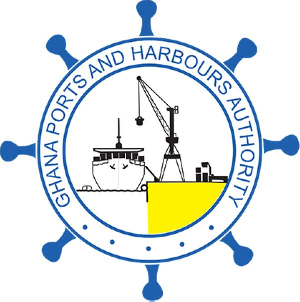Accra (Greater Accra), 13th May ?99 ?
A group of high-level officials and technical managers from African and selected world organisations on Wednesday converged in Accra to begin a three-day conference on the effects of the millennium bug, or Y2K, on the region.
The Conference, which is part of a global awareness campaign with emphasis on contingency planning, is organised under the auspices of the African Regional Y2K steering committee and funded by the World Bank.
It is aimed at focusing on regional and sector risk assessments, continuity planning for high risk cross-border concerns, and sector and global emergency response scenarios.
The Accra meeting will help the continent to identify and empower an African Y2K Co-ordinating body, produce an action plan and develop contingency plans that will harmonise efforts of the region and draw on best practices.
In a keynote address, Alhaji Mahama Iddrisu, Presidential Adviser on Governmental Affairs, stressed the need for the region to be serious about the Y2K problem since it cannot be solved in isolation.
"The supply-chain ordered by the production cycle has woven a network of complex linkages and inter-dependencies that transcend national and regional boundaries," he said.
Indeed, Alhaji Iddrisu said, Y2K-related failure in one sector may have adverse repercussions on business and industrial activity in another country.
Y2K, is a computer programming flaw that could cause computer systems and other electronic devices programmed to record date information in two digits instead of four to malfunction or completely shut down at the turn of year 2000.
Alhaji Mahama urged participants to take the opportunity of the forum to forge stronger collaboration and the necessary co-operation to facilitate the exchange of ideas on common problems pertaining to Y2K remediation.
"There is no doubt that this conference will stand out not only as a turning point in the resolution of the Y2K problem in Africa but is also another evidence of fraternal regional co-operation in Africa as we enter the new millennium," he said.
As a region of developing nations, he said, Africa should be concerned with the prevalence of systems which will have to be identified and replaced immediately if widespread disruption in basic services is to be averted.
Y2K highlights how all nations depend on each other for economic life and, for most nations in Africa, areas to be hit are the embedded chips found in a wide range of electronic devices.
These include security and hospital equipment, power generation systems, office and domestic appliances, electronic financial transactions, traffic lights, elevators, and aviation communication.
"In view of the fact that Y2K remediation programmes in most African countries have just taken off, and for that matter might not be able to meet the inescapable deadline, it would be desirable for this conference to focus on evolving contingency plans to deal with the situation," Alhaji Mahama said.
A representative of the Common Market of East and Southern Africa (COMESA), Dr Charles Chintunya dwelled on the need for Africa to draw on its practices or experiences in attempting to find solution to the problem.
He said the increasing free movement of labour, capital and investments among African states make it imperative for the region to look for a common solution.
"Although, this is a global problem which has the potential to slow down growth, collective efforts within Africa can help mitigate the effects on our economies," Dr Chitunya said.
ECOWAS, COMESA and South African Development Community (SADC) were represented at the conference.
General News of Thursday, 13 May 1999
Source: null












